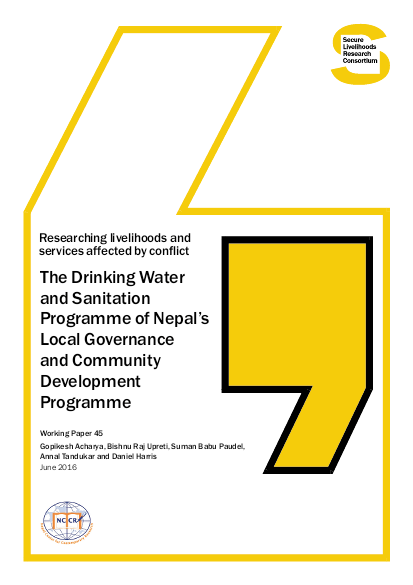
The 1996-2006 insurgency significantly affected local governance in Nepal and people’s trust in its institutions, though Ilam was not as badly affected as Rolpa and Bardiya districts. This paper examines the impact of the Local Governance and Community Development Programme (LGCDP) interventions in Ilam on basic drinking water and sanitation service delivery and local governance and state-society relations in the post-conflict period. The authors argue that though state capacity to deliver services and the capacity of Drinking Water Management Committee (DWMC) members to self-organise and act seem to have improved significantly, there remain challenges. These are related to users’ dissatisfaction with the quality and quantity of services; substantial barriers to access, both financial and social, due to the informal status of DWMCs; and a lack of adequate, accountable and responsible institutional mechanisms to monitor the performance due to lack of elected local government in the municipalities.
